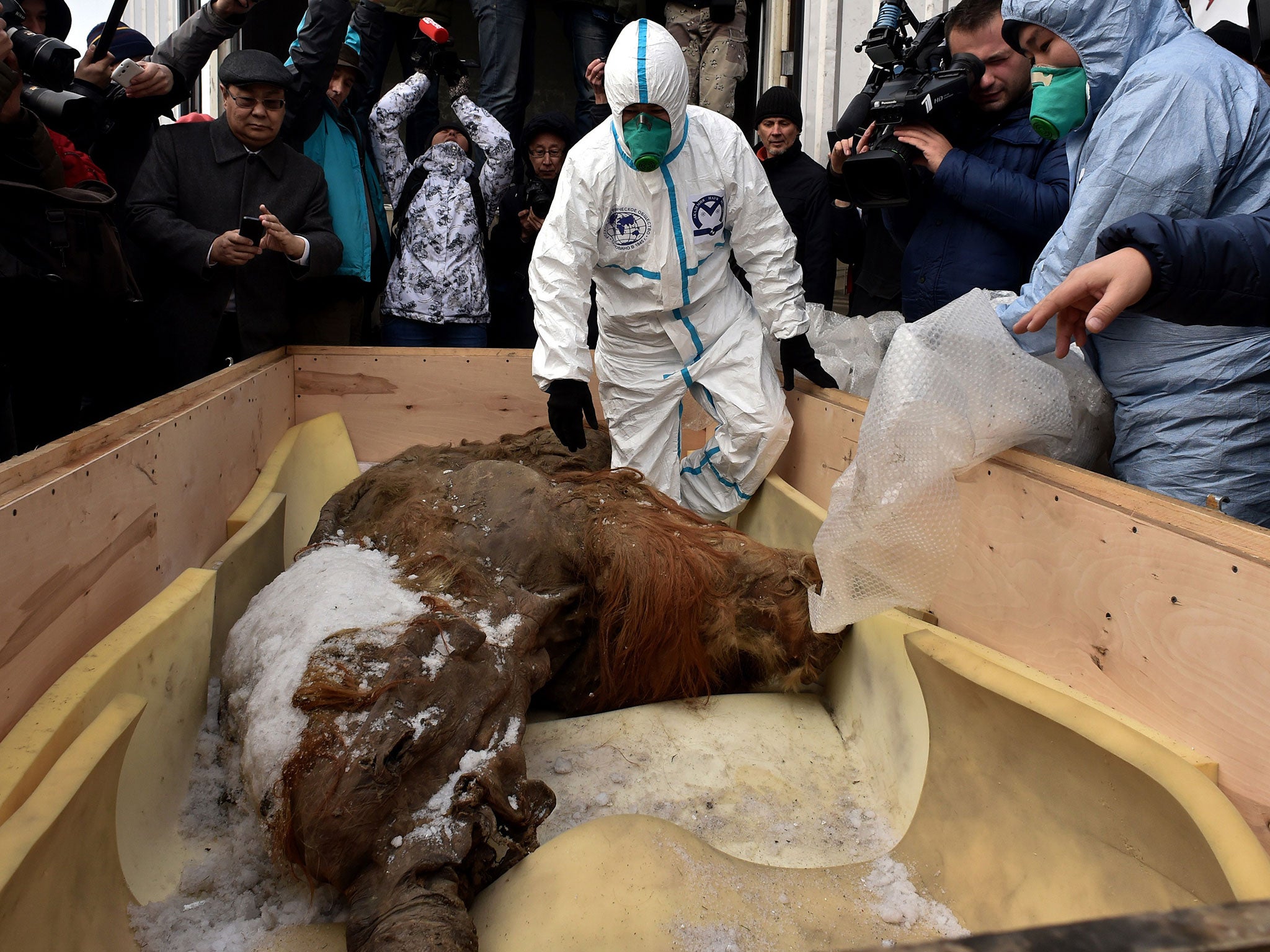39,000-year-old baby mammoth goes on display in Moscow
Video: The ancient carcass was found in 2010 in Russia's far north region of Yakutia

Your support helps us to tell the story
From reproductive rights to climate change to Big Tech, The Independent is on the ground when the story is developing. Whether it's investigating the financials of Elon Musk's pro-Trump PAC or producing our latest documentary, 'The A Word', which shines a light on the American women fighting for reproductive rights, we know how important it is to parse out the facts from the messaging.
At such a critical moment in US history, we need reporters on the ground. Your donation allows us to keep sending journalists to speak to both sides of the story.
The Independent is trusted by Americans across the entire political spectrum. And unlike many other quality news outlets, we choose not to lock Americans out of our reporting and analysis with paywalls. We believe quality journalism should be available to everyone, paid for by those who can afford it.
Your support makes all the difference.It may be nearly 40,000 years old but the carcass of a young woolly mammoth is in good shape and proudly on display in the Russian capital Moscow.
The mammoth was found in 2010 in the Russian region of Yakutia. Thus, scientists called the carcass Yuka. The mammoth was between six and nine years old when it died.
Yuka's preserved body shows signs that humans hunted for mammoths during the Ice Age, according to researcher Albert Protopopov.
While Protopopov told the Associated Press that Yuka was 38,000 years old, other researchers place the mammoth's age at 39,000.
Yuka was found in brilliant condition in permafrost, which allowed scientists the rare opportunity to study the well-preserved brain of the woolly mammoth.
Reaching up to 13 feet in height, mammoths lived in Russia, northern China, Europe and most of North America before being driven to extinction around 10,000 years ago.
Some researchers have deciphered some of woolly mammoth's genetic code and believe they could clone them if they found some living cells.
However, Protopopov said. "It is not possible to find living cells as they don't survive after tens of thousands years."
Before arriving in Moscow on Tuesday, the baby mammoth had toured Japan and Taiwan. It is on display at an exhibition of the Russian Geographic Union.
Back in May, a 42,000 year old baby mammoth was displayed for the first time in Western Europe. The Natural History Museum hosted the carcass of Lubya, described as the most complete preserved mammoth in the world.
Additional reporting by AP.
Join our commenting forum
Join thought-provoking conversations, follow other Independent readers and see their replies
Comments